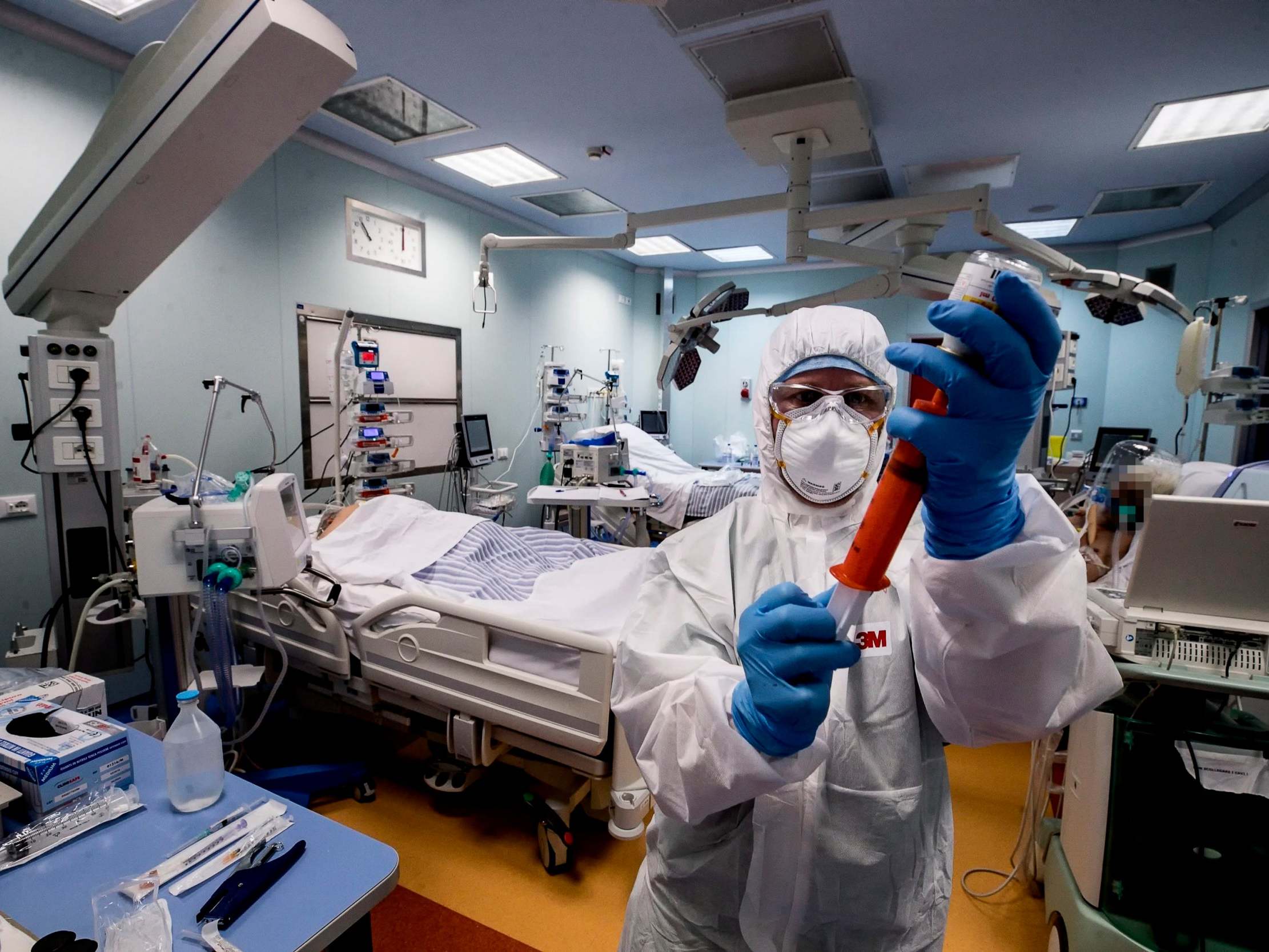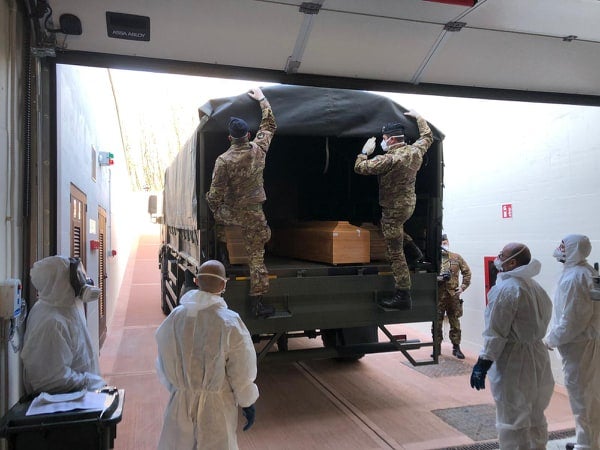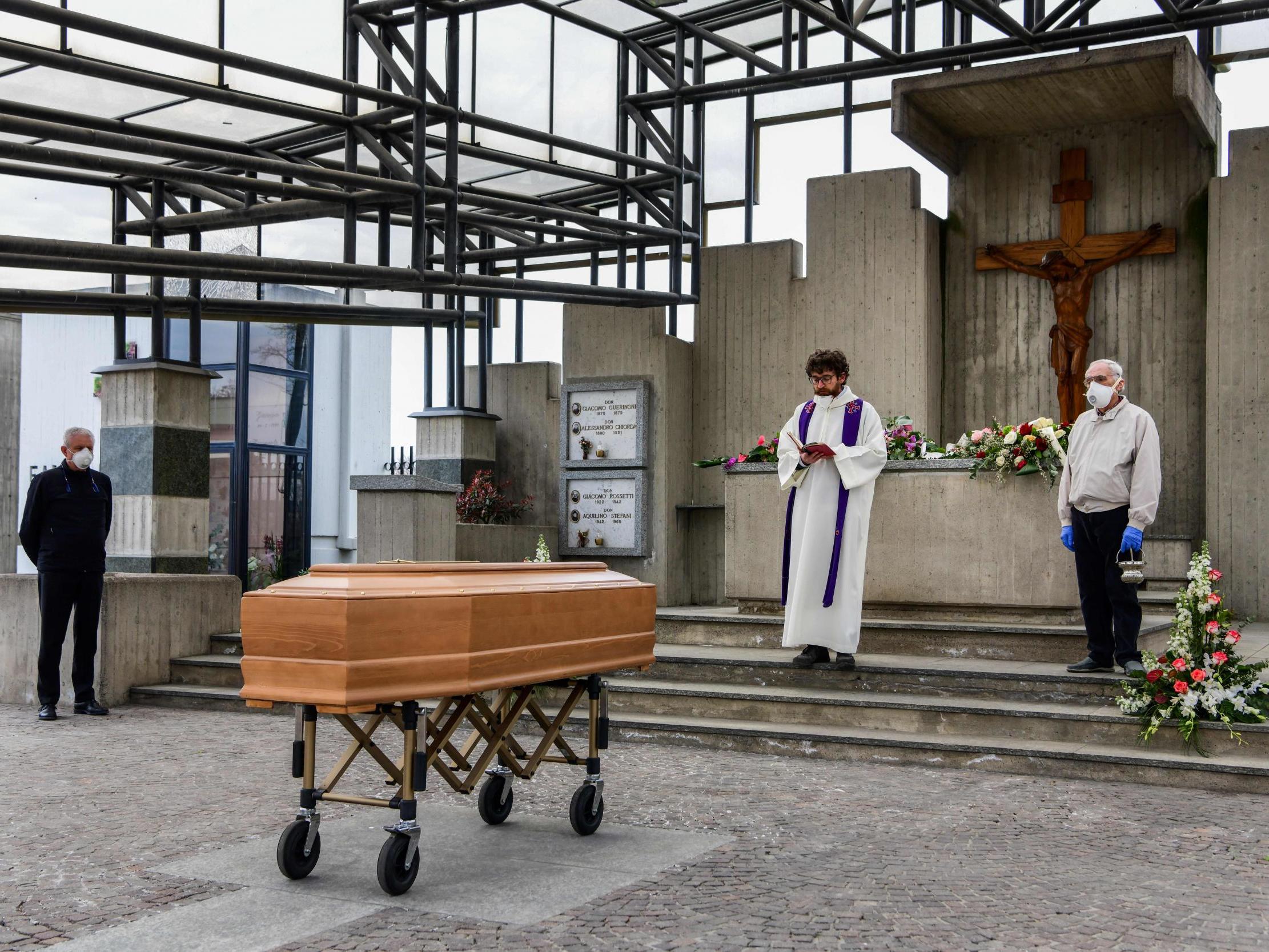How the UK failed to listen to Italian doctors' warnings about coronavirus
Britain may end up the worst-hit country in Europe, why did leaders not learn from the first holder of that title? Federica Marsi speaks to doctors who told The Independent last month drastic action was needed

As a new coronavirus swept the globe like a tsunami, each country along its unforgiving path knew what could happen.
Despite seeing a few cases in China quickly escalate to a full-blown epidemic, in Italy some politicians urged people not to change their habits. By the time Covid-19 hit Britain, the country had been watched events unfold in Europe, yet it opted for a half-hearted lockdown and then marvelled at the speed at which beds were filling up in the capital.
“When it touches you personally, that’s when you change your behaviour,” Giovanni Carrosio, a sociology lecturer at the University of Trieste tells The Independent.
Carrosio, who focuses on environmental issues and social cohesion, says: “Social systems struggle to activate themselves for prevention, they only do that when crisis hits.
“This is because, as humans, we refuse to believe in a system that goes against the one we have built for ourselves.”
Italy, whose coronavirus response was a warning from the future for the rest of Europe, is aware that it can no longer underestimate the risk posed by Covid-19. Looking at the road ahead, professionals are looking at their own shortcomings and at the lessons that can be learnt.
At Fondazione Poliambulanza, a major medical hub in the northern town of Brescia, director Alessandro Triboldi reflects on the critical gaps in the readiness of the sanitary system at the local and national levels. “We thought we had prepared ourselves by adding six beds in intensive care,” he says. “They have now become 70.”
Before Covid-19 struck Italy in February, the country had 5,179 spaces in intensive care. As of 31 March, they had almost doubled to 9,122. Still, doctors in the hard-hit towns of Cremona, Bergamo and Brescia admit being forced to allocate treatment to patients according to wartime logic due to the lack of intensive care beds.
Last month, Triboldi and other Italian doctors speaking to The Independent, issued a warning, inviting countries where Covid-19 cases were still relatively low to pull resources and medical equipment before the healthcare system stretched beyond its limit.
As Italy’s strict lockdown measures slowly succeed in flattening the curve, Fondazione Poliambulanza is gradually reopening a section of its emergency room for non-infected patients (the two separate wards are clearly marked by the colours green and red to avoid contagion).
The hospital is now preparing for a new emergency: the inflow of patients whose treatment was suspended due to the outbreak. Chemotherapy, scans, transplants and surgery, for instance, were difficult, if not impossible, during the emergency. Dozens of specialist cancer wards were converted to treat coronavirus.
Moving forward, Triboldi says the hospital has learned two lessons from the emergency. First, to centralise all management in one place, “like a control tower in an airport”. Second, to build a network based on sharing resources.

“In Brescia and its province, we coordinated to divvy up PPE,” he says. “Protective material was always dwindling, but no one was left without it.”
Almost six weeks after a nationwide lockdown was implemented to prevent the spread of the virus, Italy is now hopefully looking to begin “phase two” – a period of timid reopening where citizens will attempt to live with the virus without triggering another outbreak.
Similarly to other countries, it has placed high hopes on “immunity passports” obtained through serological tests – analysis on a tiny blood droplet from the fingertip that verifies the presence of antibodies believed to grant some level of immunity. Industrial giants like Ferrari have touted tests as the quick fix that will reopen offices and factories.
But such a system faces substantial criticism. Andrea Crisanti, a leading virology researcher at the University of Padoa and lecturer at Imperial College London, dismisses the talk of an immunity passport as “hogwash”.
Even if a serological test could identify the presence of antibodies, numerous questions are unresolved: are antibodies always effective at neutralising the virus? How long does immunity last? (If, indeed, it is granted in the first place.)

Serological tests for the new coronavirus could be deeply misleading for individual cases, returning false positives. Scientists, however, can collect these errors on a large scale, to assess the overall immunity in a population.
They also do nothing to prove whether the viral load that triggered the antibodies is still present in the body – and, therefore, whether the person is contagious. For that, the traditional swabs are necessary, and they are scarce.
Among a deluge of commentators, Crisanti is one who can claim to have beat the virus at its game. Beginning on 6 March, researchers at the University of Padua and the Red Cross conducted an experiment. They tested all residents of Vo, a town of 3,000 inhabitants near Venice, including those who had no symptoms. Those who tested positive were quarantined before they could show signs of infection and spread the virus to others. In this way, they eradicated coronavirus from the town in under 14 days.
As the false sense of security has driven countries away from the initial, more manageable stages, and deeper towards a global pandemic of epic proportion, it is now late to isolate and test all residents in cities the scale of London and Milan.
But lessons of the past may still be put to fruition as countries look at new ways to track contacts, enforce acceptable levels of social distancing and, perhaps, even prevent the next pandemic.
Join our commenting forum
Join thought-provoking conversations, follow other Independent readers and see their replies
Comments